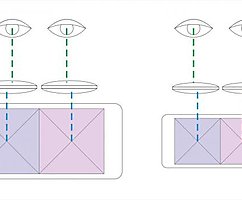Banks are looking for borrowers phone calls
 Bashny.Net
Bashny.Net
Who do you call that writing to Facebook, that are looking at Google, which go on Fridays - all banks will soon begin to take into account when granting the loan.
Financial institutions are very conservative and have not yet realize the value of telephone metadata, and other information that may be from your smartphone and from social networks. But soon the situation will change. There was a number of financial IT startups that are developing metadata analysis technology to calculate the user's credit rating and the probability of repayment of the loan to them.
For example, working on similar technology Bёrkegren Daniel (Daniel Björkegren), US economist at Brown University, рассказывает New Scientist. One of his test sample includes call history 3,000 people who have taken a loan at a bank in Haiti. Then look at how many calls a person makes every day, what is the duration of these calls as indicators of change over time and how successful a person pays on the loan.
The algorithm tries to identify some patterns in the metadata, which give reason to judge human character. Does he call back missed calls? How timely pays the bills, it does not leave you at a loss? These parameters indicate the responsible person.
Bёrkegren at a recent conference in Cambridge presented the results of his research. During the experiment in Haitian bank succeeded in reducing loan defaults as much as 43%, as the program has helped to define more responsible people.
With colleagues agree and opinion leading analyst startup Cignifi , working in related fields. Since many people use their smartphones every day, the metadata allow very quickly determine whether changes in a person's life and tell a lot about its current status. For example, the time of day at which the calls are made, is a useful indicator of whether a person will give credit.
How banks will take this information? This is evident from the mobile operators. The request for the release of information to send the user who asks for a loan. If he refuses to do so, it will receive a negative evaluation at much credit scoring, and perhaps even the refusal to grant the loan.
Similarly, banks may request information from social networks. For example, a complete history of human activity in social networks for life.
As you know, Facebook sends this information upon request. Personal files on each user of Facebook includes 57 categories (work, education, friends, political views, interests, photos, etc.). Among other things, stored and deleted messages, chat session, the names of former friends and other data with a mark «deleted: true». Perhaps in this way comes, and other social networks.
Source: geektimes.ru/post/250218/
Financial institutions are very conservative and have not yet realize the value of telephone metadata, and other information that may be from your smartphone and from social networks. But soon the situation will change. There was a number of financial IT startups that are developing metadata analysis technology to calculate the user's credit rating and the probability of repayment of the loan to them.
For example, working on similar technology Bёrkegren Daniel (Daniel Björkegren), US economist at Brown University, рассказывает New Scientist. One of his test sample includes call history 3,000 people who have taken a loan at a bank in Haiti. Then look at how many calls a person makes every day, what is the duration of these calls as indicators of change over time and how successful a person pays on the loan.
The algorithm tries to identify some patterns in the metadata, which give reason to judge human character. Does he call back missed calls? How timely pays the bills, it does not leave you at a loss? These parameters indicate the responsible person.
Bёrkegren at a recent conference in Cambridge presented the results of his research. During the experiment in Haitian bank succeeded in reducing loan defaults as much as 43%, as the program has helped to define more responsible people.
With colleagues agree and opinion leading analyst startup Cignifi , working in related fields. Since many people use their smartphones every day, the metadata allow very quickly determine whether changes in a person's life and tell a lot about its current status. For example, the time of day at which the calls are made, is a useful indicator of whether a person will give credit.
How banks will take this information? This is evident from the mobile operators. The request for the release of information to send the user who asks for a loan. If he refuses to do so, it will receive a negative evaluation at much credit scoring, and perhaps even the refusal to grant the loan.
Similarly, banks may request information from social networks. For example, a complete history of human activity in social networks for life.
As you know, Facebook sends this information upon request. Personal files on each user of Facebook includes 57 categories (work, education, friends, political views, interests, photos, etc.). Among other things, stored and deleted messages, chat session, the names of former friends and other data with a mark «deleted: true». Perhaps in this way comes, and other social networks.
Source: geektimes.ru/post/250218/
Tags
See also
Special series phones TAG Heuer Meridiist
Terrible credit history (7 pics + text)
Overview unusual set: mini-phones, earphones transmitting sound into the skull and headset-hours
Credit history (7 pics + text)
How to fight off Desheli
The Alfred Laengle: Symmetry values
Calls to Beeline















